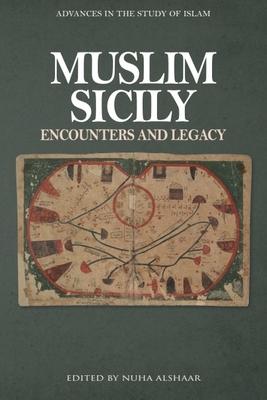The period of Arabo-Islamic domination of parts of Sicily, and the consequent large Muslim presence on the island from 800 to the mid-13th century constitutes a crucial epoch whose influence remains an integral part of the island's architectural and cultural landscape. This volume builds on existing scholarship and goes beyond the 'Arabo-Norman' construct to afford greater recognition to the island's Arabic and Islamic history. Using a multidisciplinary approach, the chapters examine Sicily's mercantile, artistic and architectural links to the Muslim world, including the subjects of the Fāṭimids of Ifrīqiya and their Kalbid allies in Sicily. It also reflects upon the Arabo-Islamic philosophical legacy at the court of Frederick II, Muslim accounts of medieval Sicily, Fāṭimid influence on the arts, women's textile production, discussions of linguistics and literature, and various other aspects of Sicily's diverse cultural and religious life during this period.

Muslim Sicily: Encounters and Legacy
The period of Arabo-Islamic domination of parts of Sicily, and the consequent large Muslim presence on the island from 800 to the mid-13th century constitutes a crucial epoch whose influence remains an integral part of the island's architectural and cultural landscape. This volume builds on existing scholarship and goes beyond the 'Arabo-Norman' construct to afford greater recognition to the island's Arabic and Islamic history. Using a multidisciplinary approach, the chapters examine Sicily's mercantile, artistic and architectural links to the Muslim world, including the subjects of the Fāṭimids of Ifrīqiya and their Kalbid allies in Sicily. It also reflects upon the Arabo-Islamic philosophical legacy at the court of Frederick II, Muslim accounts of medieval Sicily, Fāṭimid influence on the arts, women's textile production, discussions of linguistics and literature, and various other aspects of Sicily's diverse cultural and religious life during this period.